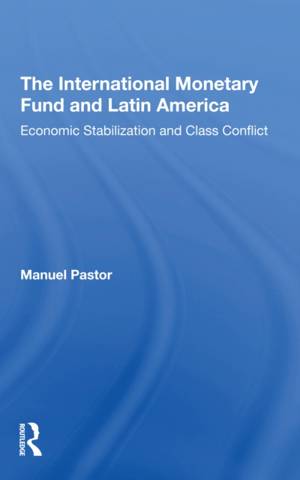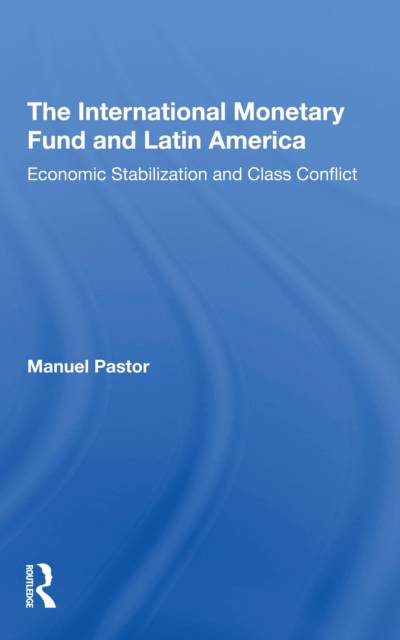
- Afhalen na 1 uur in een winkel met voorraad
- Gratis thuislevering in België vanaf € 30
- Ruim aanbod met 7 miljoen producten
- Afhalen na 1 uur in een winkel met voorraad
- Gratis thuislevering in België vanaf € 30
- Ruim aanbod met 7 miljoen producten
Zoeken
The International Monetary Fund And Latin America
Economic Stabilization And Class Conflict
Manuel Pastor
Paperback | Engels
€ 83,95
+ 167 punten
Uitvoering
Omschrijving
The debt crisis in Latin America has rekindled debate about the effects of the IMF's stabilization programs in the Third World. Critics contend that these programs have short-run recessionary impacts and damage prospects for long-term growth. In response, Fund economists point to cross-country studies revealing mixed impacts on growth rates coupled with significant success in achieving the IMF's stated goals: current account and balance-of-payments improvements and inflation rate reduction. Dr. Pastor argues that the traditional growth-oriented critique is theoretically misplaced, and he recasts Fund activities in terms of class and income distribution. Applying the methodology of previous Fund studies, he evaluates the effects of IMF programs in eighteen Latin American countries in the pre-crisis period (1965-1981).
Specificaties
Betrokkenen
- Auteur(s):
- Uitgeverij:
Inhoud
- Aantal bladzijden:
- 228
- Taal:
- Engels
Eigenschappen
- Productcode (EAN):
- 9780367308650
- Verschijningsdatum:
- 31/05/2021
- Uitvoering:
- Paperback
- Formaat:
- Trade paperback (VS)
- Afmetingen:
- 152 mm x 229 mm
- Gewicht:
- 272 g

Alleen bij Standaard Boekhandel
+ 167 punten op je klantenkaart van Standaard Boekhandel
Beoordelingen
We publiceren alleen reviews die voldoen aan de voorwaarden voor reviews. Bekijk onze voorwaarden voor reviews.











